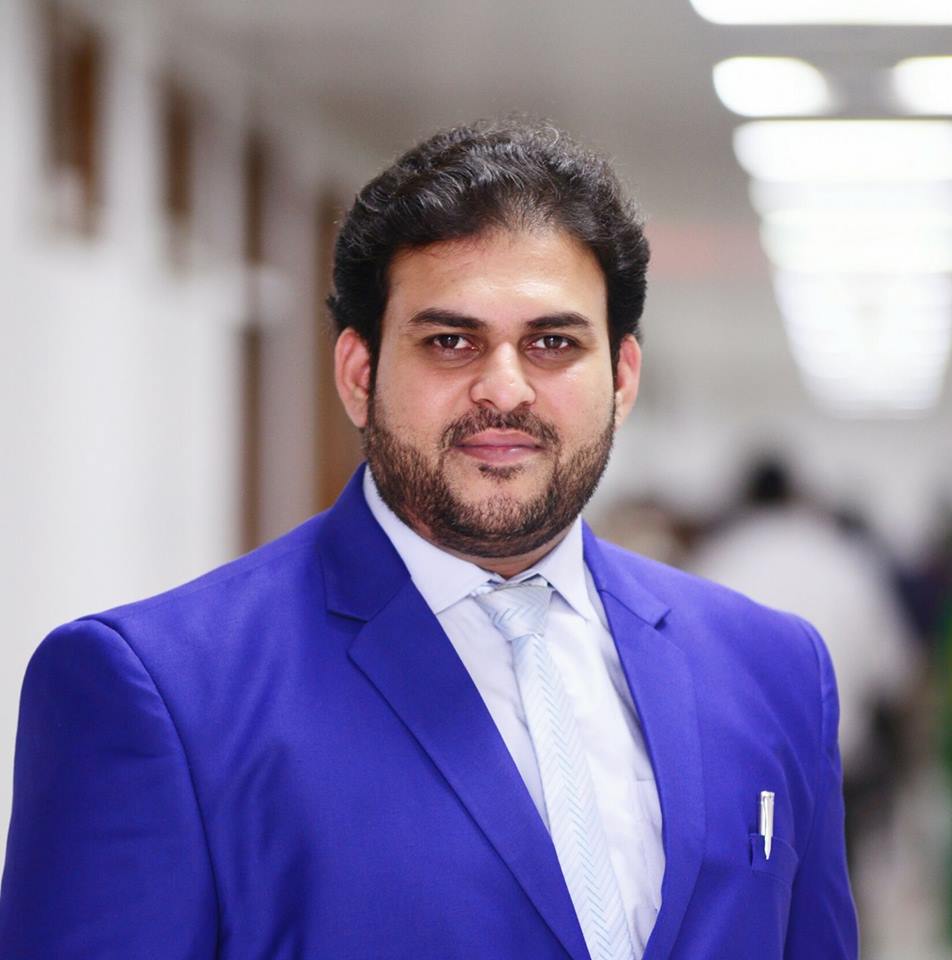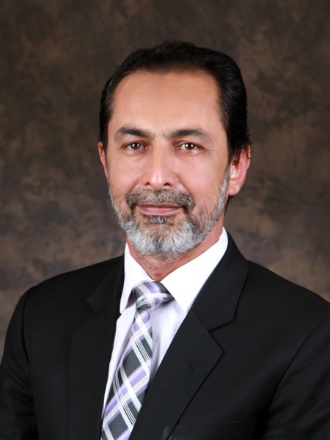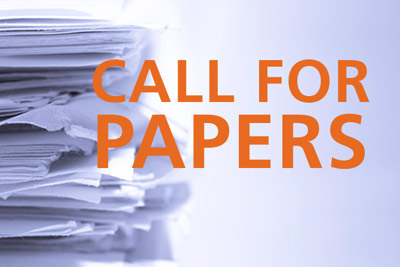



Chairman & Associate Professor, Department of Computer System Engineering,
Hamdard University, Karachi.
Dr. Engr. Syed Sajjad Hussain Rizvi is an eminent scholar and an active academician. He is a certified Professional Engineer (PE) of Computer System Engineering (CSE) with Masters Degrees in Telecommunication (MS-TEL) and Business Administration (MBA). Dr. Rizvi has earned his Ph.D. in the area of Image Processing and Information Retrieval. In addition, he has also been awarded the status of Approved Ph.D. Supervisor by Higher Education Commission, Pakistan. He poses rich teaching experience and used to teach thecourses in the domain of Computer Sciences, Communication and Management both at Undergraduate and Postgraduate level. Currently, he is associated with Hamdard University as Chairman, Computer Engineering department. far, Dr. Rizvi has supervised more than 30 Undergraduate and Master level project/thesis. Moreover, currently, he is supervising 05 Ph.D. students at Hamdard University, Karachi. Dr. Rizvi has comprehensive expertise on modern-day tools used for research and development. Dr. Rizvi is well known in the research and academic community and an active member of various local and international academic bodies like IEEE, PEC, HEC, IEP, IAENG, etc. The research areas of Dr. Rizvi include, but not limited to, EEG signal processing and classification, optimization, image de-noising, and image retrieval, and adaptive filtering. He always takes an active leading role in various conferences, competitions, workshops etc. organized at local and international level. Dr. Rizvi has provided consulting solutions to many of the local industries and provides active assistance in many of the industrial projects.
Optimization of real world applications has always has been an essential and acute need for effective and efficient output. In past, this need was dealt by numerical and analytical methods. However, these methods are found to be deficient to handle the complex problems. As a result the evolutionary nature inspired heuristics algorithms have well handled this issue. In the literature a massive number of Natured Inspired (NI) algorithms have been presented. In addition, the researchers have devised different variants of these NI algorithms for different application. These applications include, but not limited to, antenna optimization, energy optimization, power system planning, image & signal optimization etc. In general the scope of NI is bi-folded. First is unconstrained optimization for relatively less complex unconstrained problem. Second is constrained optimization for the problem with constrained objective. In the literature, the researchers have presented the rationale to opt constrained optimization approach for specific applications. In this connection, numerous constrained handling techniques (CHTs) have already been devised. Apparently, the scenario looks benefiting however, the selection criteria of the best candidate for a specific problem is still unhandled. Primarily, the selection criterion is a function of performance and complexity for the specific problem. This talk is mainly focusses on the future direction in the selection of CHTs for optimization algorithm.

Associate Dean, Faculty of Engineering, Science & Technology,
Iqra University, Karachi.
Dr. Engr. Muhammad Zubair Ahmad did his B.E. (Electrical Engineering) in 1992. Soon after the graduation, he joined Siemens Pakistan Engineering Co., Ltd. as Commissioning Engineer. In the organization; he was selected to participate in a power automation training course offered by Siemens France. After the successful completion of the course; he worked on various power and automation projects locally and abroad. During his job at Siemens; Dr. Zubair completed his M.S. (Electrical Engineering) in 1998. He served Siemens for around 6 years and left the organization in the capacity of Senior Executive Engineer. After this industrial exposure, he joined the field of academia and decided to transfer the technical knowledge to the youth. In the meantime, Dr. Zubair continuously strived to further enhance his academic qualification both vertically and horizontally. He therefore completed PhD (in Antenna Optimization) to achieve terminal engineering degree in vertical direction. Horizontally, he earned an MBA (in Marketing) degree. Currently, he is serving at IQRA University as an Associate Dean, Faculty of Engineering Sciences and Technology. He has been selected as 'Approved PhD Supervisor' by Higher Education Commission, Pakistan. Moreover, he has been given 'Best University Teacher's Award' by Higher Education Commission, Pakistan in 2016.
It is a well-known fact that the performance of classical hard computing is found to be constrained in finding the optimized solution which may not be in the search space. This issue has been resolved by employing various soft computing approaches. A soft computing approach evolves new solutions from within the given search space and then finds the optimal solution based on the given objective(s) and constraint(s). Genetic algorithm (GA) and particle swam optimization (PSO) algorithm are the most employed evolutionary algorithms for solving multi-objective complex problems. Moreover, researchers have proposed three different types of their hybrid combination for extra improved performance. This paper proposes a new hybrid genetic particle swarm optimization (HGPSO) algorithm and evaluates it on a few of the standard testing functions. The evaluation results prove that the proposed hybridization is much better than the three existing hybrid approaches given in the literature.
